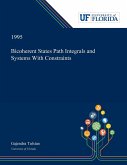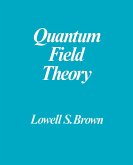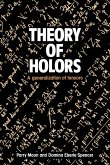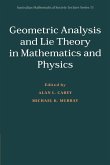This is a concise graduate level introduction to analytical functional methods in quantum field theory. Functional integral methods provide relatively simple solutions to a wide range of problems in quantum field theory. After introducing the basic mathematical background, this book goes on to study applications and consequences of the formalism to the study of series expansions, measure, phase transitions, physics on spaces with nontrivial topologies, stochastic quantisation, fermions, QED, non-abelian gauge theories, symmetry breaking, the effective potential, finite temperature field theory, instantons and compositeness. Serious attention is paid to the shortcomings of the conventional formalism (e.g. problems of measure) as well as detailed appraisal of the ambiguities of series summation. This book will be of great use to graduate students in theoretical physics wishing to learn the use of functional integrals in quantum field theory. It will also be a useful reference for researchers in theoretical physics, especially those with an interest in experimental and theoretical particle physics and quantum field theory.
Table of contents:
Preface; 1. Scalar Green functions and their perturbative solutions; 2. Connected Green functions and their one-particle irreducible components; 3. Regularisation and renormalisation; 4. The scalar functional integral; 5. Series expansions and their summation; 6. Taking the path integral more seriously; 7. Quantum theory on non-simply-connected configuration spaces; 8. Stochastic quantisation; 9. Fermions; 10. Quantum electrodynamics; 11. Non-abelian gauge theories; 12. Explicit symmetry breaking and its classical limit; 13. The effective potential; 14. Field theory at non-zero temperature; 15. Field theory at non-zero temperature: real-time formulation; 16. Instantons; 17. Composite fields and the large-N limit; References; Index.
This book will be of great use to graduate students in theoretical physics wishing to learn the use of functional integrals in quantum field theory. It will also be a useful reference for researchers in theoretical physics, especially those with an interest in experimental and theoretical particle physics and quantum field theory.
This is a concise graduate level introduction to analytical functional methods in quantum field theory.
Table of contents:
Preface; 1. Scalar Green functions and their perturbative solutions; 2. Connected Green functions and their one-particle irreducible components; 3. Regularisation and renormalisation; 4. The scalar functional integral; 5. Series expansions and their summation; 6. Taking the path integral more seriously; 7. Quantum theory on non-simply-connected configuration spaces; 8. Stochastic quantisation; 9. Fermions; 10. Quantum electrodynamics; 11. Non-abelian gauge theories; 12. Explicit symmetry breaking and its classical limit; 13. The effective potential; 14. Field theory at non-zero temperature; 15. Field theory at non-zero temperature: real-time formulation; 16. Instantons; 17. Composite fields and the large-N limit; References; Index.
This book will be of great use to graduate students in theoretical physics wishing to learn the use of functional integrals in quantum field theory. It will also be a useful reference for researchers in theoretical physics, especially those with an interest in experimental and theoretical particle physics and quantum field theory.
This is a concise graduate level introduction to analytical functional methods in quantum field theory.








